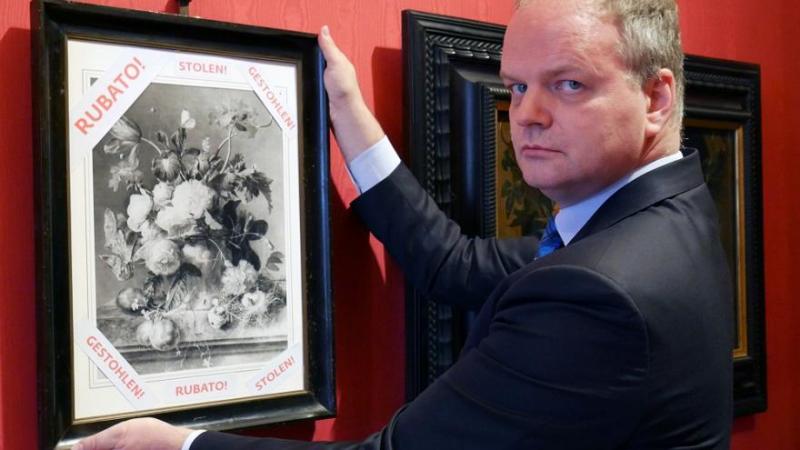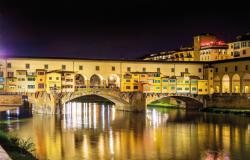Uffizi Gallery director Eike Schmidt is urging Germany to return an 18th-century painting stolen by the Nazis in the Second World War to Italy.
The oil painting, Vase of Flowers, is considered a masterpiece by Dutch still life artist Jan van Huysum. The 47x35cm painting on canvas became part of the Pitti Palace collections in 1824 when it was bought by Grand Duke Leopoldo II for his art collection.
In the room inside Pitti Palace where the painting was once displayed, Schmidt put up a black and white photo with the word ‘stolen’ in Italian (‘rubato’), English and German (‘gestohlen’).
“Because of this affair, the wounds of the Second World War and Nazi terror are not yet healed,” Schmidt, who is German, said. “Germany has a moral duty to return the works to our museum and I hope this will be done as soon as possible, along with every other work of art looted by the Nazi army.”
German soldiers seized the painting in 1944; it subsequently disappeared until it re-emerged in 1991. The painting is now held by a German family, who want to sell it back to the Uffizi; Schmidt says it must be returned for free since it already belongs to the Italian state, therefore it cannot be sold. A lawyer representing the German owners of the artwork said the family obtained it legitimately, inheriting it from their grandfather, who was an officer in the Wehrmacht, and came into possession of the painting through a chance discovery or a purchase in good faith; their grandfather did not remove it from Pitti Palace, they say. Schmidt said it doesn’t matter how he obtained the painting because it is still Nazi-looted art.
The black and white reproduction of the painting, which includes a caption explaining that Nazi soldiers removed it from its original position, will remain in the Sala dei Putti in Palazzo Pitti until the original is returned, said Schmidt.









